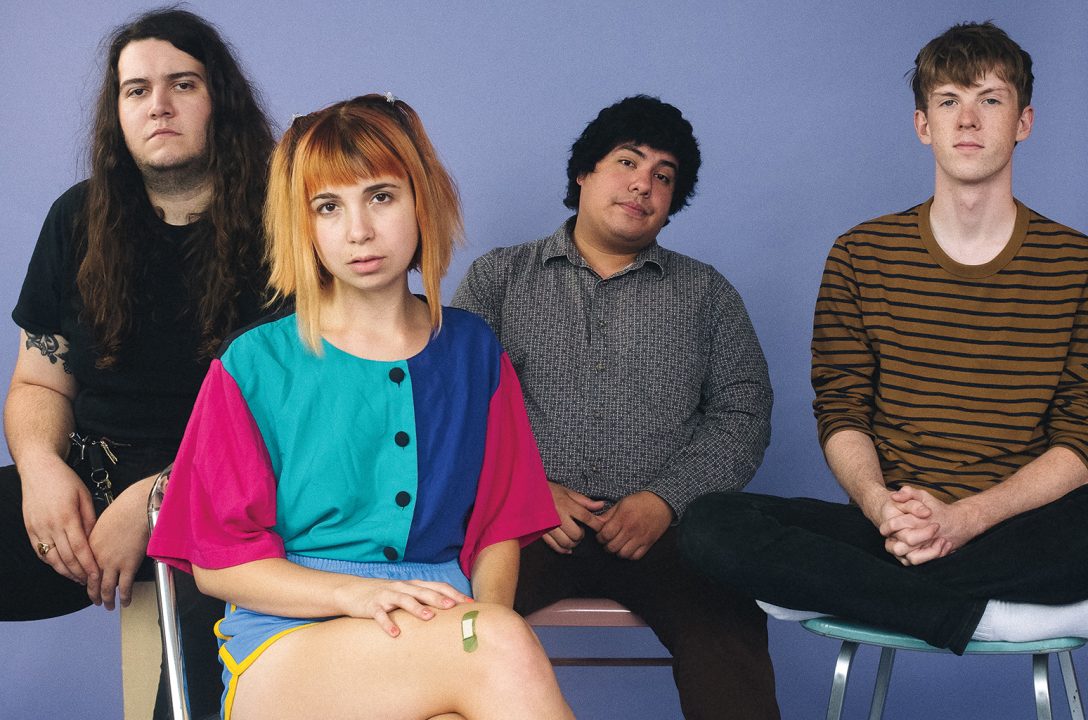Sitting in The Commons the day before Thanksgiving, sampling some home-cooked drumsticks and watching the students go by, one might not guess CHOZEN — known off stage as Karl Ominiabohs, a member of UMBC’s Retriever Music Society (RMS) — is set to play a gig in just a few hours. Unassuming and friendly, he talks for a good 10 minutes before any mention of a gig comes up, and when it finally does, he is as calm about it as he is with everything else he has been talking about.
The gig in question, called “Driven to Clarity,” took place at the OCA Mocha coffee shop in Arbutus on Wednesday, Nov. 27. It was a first for the area in a few ways. OCA Mocha, whose doors opened Nov. 4, is itself a first, being both the first UMBC student-led business to grace the storefronts of Arbutus and the first step toward making Arbutus a college town. The gig was also OCA Mocha’s first collaboration with the Retriever Music Society, a student-led organization devoted to shining a spotlight on local campus musicians, previously known as “UMBeats.”
OCA Mocha has been vocal about its efforts to cultivate a culture for UMBC students. From open mic nights to collaborations with the local WMBC radio station, it is clear that OCA Mocha’s efforts are not for nothing. The collaboration between OCA Mocha and RMS is an opportunity that would not have been possible until recently, as both OCA Mocha and Retriever Music Society are still in their infancy as organizations. With that said, the merging of campus talent with campus business offers great insight into the creative culture within UMBC, something that Ominiabohs believes is valuable for all involved.
“I think it’s great. Whether it’s learning how to put out a product or shows like this, it gives a student a sense of pride. ‘Wow, this is really something I’ve put together.’ That can translate to any other aspect of life… I really feel it will create a space where students can be creative, let loose, and become happier students,” says Ominiabohs.
This core concept of student leadership and cultural growth is fundamental to OCA Mocha’s foundations, and it shows a lot of potential in creating the ethos of a burgeoning college town. In that same vein, groups like the Retriever Music Society, who hold “Soundcheck” performances every few weeks and encourage creativity among the student body, represent the same great opportunity. Although it is only the first semester of this iteration of the organization, RMS is already drawing both performers and crowds alike. Its popularity illustrates the intense desire for more creativity on campus.
Ominiabohs only foresees the trend continuing: “It’s definitely going up. It’s not just about stem cells and research. I feel like there are going to be more student interactions with art in the future, even if the students don’t expect it. That can come in any form, too, whether it’s music, dance or artwork.”
Ominiabohs’ own interest in music came about fairly recently. After transferring from Bowie State and switching majors from engineering to financial economics, all it took was a Daniel Caesar concert and a $20 guitar to spurn Ominiabohs’ interest in music. Even though he did not love his first recordings (“horrible,” he scoffs, “really, really bad”), he kept at it, and Retriever Music Society was the perfect place for his interest to grow. Not only did it provide a welcoming environment of like-minded musicians to play alongside, but it also introduced him to the musical sounds and movements happening locally.
“I wanted to learn about how to make beats, initially… I just stuck with them anytime they asked me to perform, and they’re really helping me get comfortable with being on stage; crowd interaction, production, stuff like that,” he said.
Wrapping up the conversation, Ominiabohs reflects both on Retriever Music Society, OCA Mocha and the larger UMBC culture. He says, “I think UMBC is a great campus. You can find anyone from any part of the world, and you can also find diversity in the people around you. People should know that diversity is everywhere they go. Just because you’re from the same city doesn’t mean the person next to you is the same as you.”

Comments are closed.